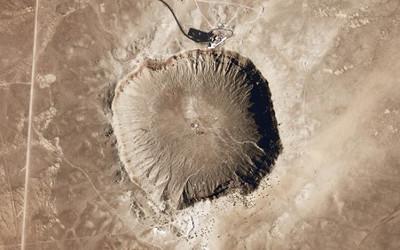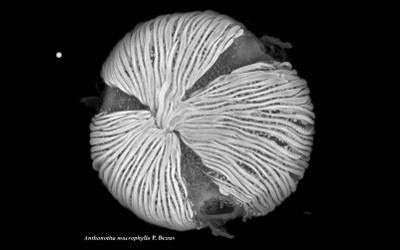International study that reveals how Earth got its water, thanks to the OU

Results from a new global research project published in Nature Astronomy indicate asteroids brought water to Earth.
Formed in the dry inner Solar System, Earth would have remained lifeless had water not been transported to it by asteroids that originated in the outer Solar System.
Using world-class oxygen isotope analysis facilities at The Open University (OU), an international team (Team Kochi) has been studying precious samples returned to Earth in 2020 from asteroid 162173 Ryugu by the Japanese Space Agency (JAXA) Hayabusa2 spacecraft.
The results of this new study show that the Ryugu particles are a very close match to a rare group of water-rich meteorites known as the CIs (Ivuna type)1. CIs are extremely fragile materials and normally fragment during atmospheric entry. As a result, they generally fail to make it to the Earth’s surface as recoverable samples. Identification of asteroid Ryugu as a CI-type body suggests that this group is much more widespread amongst the asteroid population than its limited presence in our meteorite collections suggests.
This new finding has important implications for how Earth got its water because CIs are also the most water-rich meteorite group known to science.
Dr Richard Greenwood, who led the analysis work at the OU, said:
“We take it for granted that Earth has a lot of water. It’s Christmas time and we enjoy the idea of snow. But where did all that water come from? Earth formed in the dry inner Solar System. It would not have been a place where water was abundant. Scientists generally agree that Earth’s water was delivered by wet asteroids that originated in the outer parts of the Solar System and were then flung inwards, perhaps in response to the movement of the giant planets.
“Our results demonstrate that the material collected from asteroid Ryugu is closely similar to the composition of those early hydrated asteroids that brought life-giving water to Earth. In a very real sense, these “killer” asteroids saved planet Earth”.
The samples analysed at the OU form part of a consortium study led by Dr Motoo Ito of the Kochi Institute, Japan. Team Kochi members have studied Ryugu particles in detail since their release to the scientific community in June 2021.
Dr Ito explains:
“The samples returned by the Hayabusa2 spacecraft have provided a unique opportunity to study primitive, ancient, fragile materials that could not have survived atmospheric entry. Our team includes scientists based in Japan, the UK and US. We have been studying Ryugu particles in great detail using various cutting-edge techniques.
“The analytical work undertaken at The Open University, UK, was a very important part of our research effort. We are very grateful to the UK embassy in Tokyo for the help they gave in transporting Ryugu particles to the UK.”
The new study also underlines the pristine nature of the Ryugu particles, which, unlike CIs, are not contaminated by interaction with the Earth’s environment. CI chondrites have a composition that is essentially identical to that of the Sun1. As a result, CIs are essential tools in understanding how the Solar System evolved. The fact that Ryugu particles are even more pristine than CIs means that they will become a vital new reference material and an essential tool in unlocking the solar system's early history.
A version of this story, written by Laura Bandell, originally appeared on OU News.
You may also be interested in:
Contact our news team
For all out of hours enquiries, please telephone +44 (0)7901 515891
Contact detailsNews & articles

Unlocking the secrets of pollen: OU’s role in a groundbreaking international digitisation project
In a transformative leap for the century-old science of palynology - the study of pollen - The Open University is helping in/contributing to a global effort to digitise and preserve one of the world’s most important botanical collections.